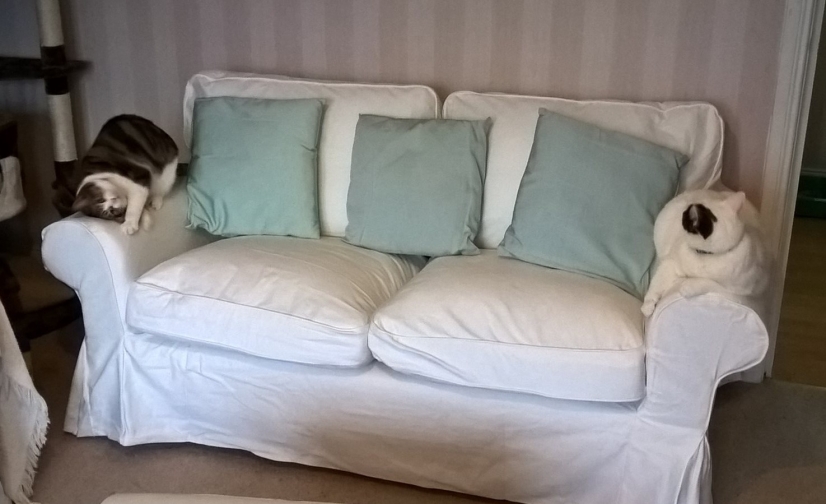Wondering about the 'cost of love' and what 'good enough love' might be, here's where we ended up hearing from the father in the parable of the prodigal son...
What more could a man want? Two boys: strong, healthy, bright, funny. I felt so blessed, so happy when each of them was born, when we chose their names and began to dream dreams about their futures.
My first born, well of course he was my heir, the one to whom, one day, hopefully a long way off, I would bequeath my land, my flocks and herds, my household. He was an earnest child, eager to please me, keen to learn what I had to teach him. Only rarely did he give me any concern; very few times when I needed to reprimand him; even fewer when I worried about his future. He was a good boy. Polite, willing, responsible. Loving him was easy, undemanding… I never felt any need to tell him I loved him, or to reward him: surely he must know how I felt.
My younger son was very different. I had different expectations of him, and different dreams for him. Perhaps I was a little easier on him, allowing him the same privileges as his older brother without the expectations. Perhaps, too, he felt he was always playing second fiddle – nothing he could do that big brother hadn’t already done. Certainly, he was challenging, asking questions, testing boundaries and getting into scrapes. Loving him was sometimes hard work, my patience was tried, and I wasn’t sure whether I was a good enough father as I contemplated ‘stick and carrot’ responses.
Still, they grew up, and began to spread their wings, seeking independence in their own ways. The older boy seemed content with his lot. He honed his skills in farming, in managing servants and employees. He worked hard and gave me a lot to be proud of.
The younger one, well he became increasingly unsettled, wanting to go exploring, to see faraway places. Had he lived in a different age, he might have said he wanted a ‘gap year’ or to ‘find himself’, whatever that means. There wasn’t a week went by that he didn’t come to me with some scheme, some plan that needed his share of the inheritance, and now.
I was torn. To refuse would almost certainly lead to resentment and rebellion. But to agree was risky – I wasn’t at all convinced he was mature enough to manage his money, let alone to go travelling. What should I do? What was the loving response? I came to the conclusion that I should let him go. It was so hard. I was terrified for him, couldn’t stop thinking about him, wondering what he was doing and was he safe. It gnawed away in side me, stole my joy. To my shame I withdrew from my wife and my older son.
And of course, there were consequences of all of that, not least that my relationship with my older son became very tense and strained. I loved him, but he was hurting, resentful, and I didn’t know how to respond. So, we settled into a pattern of uneasy coexistence.
It all came to a head the day my younger son came home. Sure, he had been wayward, foolish, selfish, but he was alive and he was home. I couldn’t contain my joy, ran down the road to greet him and threw my arms round him. Nothing was too good – the finest clothes, the best food, music and dancing – perhaps I was prodigal, extravagant but this, surely was what love demanded.
My older boy didn’t think so. When he eventually arrived home from work he was livid, and all the hurt that built up tumbled out unchecked. I winced as the allegations cut me to the core. I hadn’t realised just how angry, how taken-for-granted he felt. So many squandered opportunities to have listened to him, to have asked what was troubling him… perhaps, for him, my love hadn’t after all been good enough.
So where do we go from here?
As a father, I’ve always done my best, have always made my decisions with integrity. Sometimes those choices haven’t been the best, haven’t been as mature as I would have wished – it seems that I am still learning what love is, and what it isn’t. I’ve learned that love is costly, that is has a price if you like, that it requires patience, generosity, forgiveness and a whole lot more, whilst risking rejection, loss, rebellion, resentment and ridicule.
I’ve also begun to grasp the truth of what unconditional love is – love for myself, even when I mess up; love for my sons, different as they are; and love for the God who never, ever gives up on us, and whose love for us is vast, unending and secure.
As scripture tells us:
God so loved the world that he gave his only Son, so that everyone who believes in him may not perish but may have eternal life. Indeed, God did not send the Son into the world to condemn the world, but in order that the world might be saved through him.
Or, in paraphrase perhaps something like this
God’s love for cosmos is so intense, God’s grace so anarchic, God’s generosity so outrageous, that it is squandered in the life and the death of his only Son, who entered creation to transform it from within.
